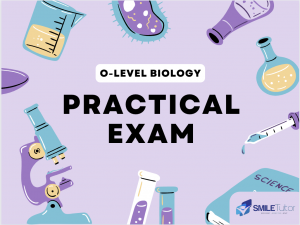Getting ready for the GCE O Level Science Practical exams can feel tricky. But don’t worry, this article is made just for you!
It’s packed with helpful tips and tricks to help you do your best in the practical part of the test. Whether you’re figuring out experiments or trying to get better at understanding data, we’ve got you covered.
Our goal is to make things clear and easy for you so that you can do great in the GCE O Level Science Practical exams.
- How do I study for GCE O Level Science Practical?
- Syllabus Breakdown for O Level Science Practical Exams
- Why is O Level Practical Science done?
- When are the O Level Science Practical Exams? (2024 Test Dates Schedule)
- What is the weightage for the GCE O level science practical?
- Tuition Option for GCE O Level Science Practical
- Where to find GCE O Level science Practical Notes?
- How to do Practical Science as a Private Candidate?
- Conclusion
How do I study for GCE O Level Science Practical?
The most effective way to prepare for the practical exam is to:
- Start by understanding the format of the practical assessments and what they expect from you
- Practice different experimental techniques and make sure you’re comfortable with handling equipment and recording data accurately.
- Review past experiments and try to understand the underlying principles behind them
Let’s go through some examples together on how we can apply this technique effectively.
Syllabus Breakdown for O Level Science Practical Exams

In this section, we will walk you through how to apply the 3 steps mentioned above for EACH SUBJECT.
Without further ado, let’s dive in!
O Level Chemistry Practical Syllabus Breakdown

First, let’s go through the syllabus breakdown for O level chemistry practical!
Step 1: Understanding the format of the practical assessments
The best resource to know what you will be tested on is to read the SEAB syllabus. (page 53)
Here is what it says in a nutshell:
The Chemistry Practical Test assesses candidates through a range of experiments and tasks. These include quantitative experiments using:
- pipettes
- burettes, and
- indicators like methyl orange, along with titrations involving other substances.
Candidates also can be tested on:
- investigating reaction speeds
- measure temperature
- conduct investigatory problems
- perform simple paper chromatography and filtration, and
- conduct tests for oxidizing and reducing agents as specified in the syllabus.
Identification of ions and gases is also a component, excluding specific tests involving Pb2+ ions or sulfur dioxide gas. The question paper includes notes for qualitative analysis to assist candidates, who may also be required to perform basic calculations.
Step 2: Practice different experimental techniques
Based on the 2024 O Level Chemistry Practical syllabus, we should focus on laboratory techniques such as
- Titration
- Filtration
- Distillation
- Precipitation
Practice these techniques until you are comfortable performing them accurately and efficiently.
Step 3: Review past experiments
Lastly, review past experiments. Your teachers will be preparing you by conducting several mock O Level Chemistry Practical experiments. Remember to pay attention as they might drop some hints.
In any case, if you want more practice, you can scroll down towards the bottom of the blog where we share with you on where to get practical notes for O level Science.
O Level Physics Practical Syllabus Breakdown
Next, let’s go through the syllabus breakdown for O Level Physics Practical.
Step 1: Understanding the format of the practical assessments
The best resource to know what you will be tested on is to read the SEAB Science Physics, Chemistry syllabus. (page 52)
Here is what it says:
The Physics Practical Test evaluates candidates’ proficiency in various measurements and experiments. Tasks include
- measuring lengths,
- time intervals,
- temperature,
- mass,
- weight,
- and volume
using appropriate instruments such as tapes, clocks, thermometers, balances, and measuring cylinders.
Additionally, candidates can be tested on
- determining density,
- study principles like moments and reflection,
- analyze optical phenomena involving mirrors and lenses,
- explore light refraction through glass blocks,
- and measure current and voltage using ammeters and voltmeters.
The list is not exhaustive, and reference to these techniques may appear in theory papers without requiring detailed experimental procedures.
Step 2: Practice different experimental techniques
Based on the 2024 O Level Physics Practical syllabus, we should focus on common experiments such as measurements of
- Time
- Length
- Mass
- Temperature
- Volume
- Density
- Current + Voltage + Resistance
We will also need to understand the use of equipment such as Vernier calipers, micrometers, stopwatches, and thermometers.
Practice these techniques until you are comfortable performing them accurately and efficiently.
Step 3: Review past experiments
Lastly, review past experiments. Your teachers will be preparing you by conducting several mock experiments.
Remember to pay attention as they might drop some hints. In any case, if you want more practice, you can scroll down towards the bottom of the blog where we share with you on where to get practical notes for O level Science.
O Level Biology Practical Syllabus Breakdown

Last but not least, let’s go through the syllabus breakdown for GCE O Level Biology Practical.
Step 1: Understanding the format of the practical assessments
The best resource to know what you will be tested on is to read the SEAB syllabus. (page 53)
Here is a summary of it:
The Biology Practical Test assesses candidates’ skills across various areas including
- following instructions,
- recording observations,
- recognizing biological features,
- drawing conclusions,
- designing investigations,
- and performing manipulative tasks
Candidates are expected to carry out experiments involving physiological tests for food substances and enzyme reactions, using standard laboratory equipment. They may also work with plant or animal materials, requiring accurate observations aided by hand lenses.
The test material aligns closely with the syllabus but may extend beyond it, and schools are encouraged to build reference collections to aid practical work and supply examination specimens.
Step 2: Practice different experimental techniques
Once you have identified what you will be tested on, it becomes a lot clearer what experiment techniques you should practice. In this case, we should focus on common GCE O Level science practical biological experiments such as
- Microscopy
- enzyme reactions
- Osmosis
- photosynthesis.
Understand the procedures involved and practice them in the laboratory.
Step 3: Review past experiments
Lastly, review past year’s O-level science practical experiments. Your teachers will be preparing you by conducting several mock experiments. Remember to pay attention as they might drop some hints.
Also take time to practice interpreting experimental results by
- Analyzing data collected during experiment
- Identifying patterns and trends in dataset
- Comparing results with initial hypothesis
As always, don’t hesitate to ask your teacher for help if you’re unsure about anything. And most importantly, keep practicing and stay organized with your notes and observations.
Why is O Level Practical Science done?

Some of you might be wondering, why is practical science done? What is the purpose of it? Are there any benefits to it?
Well, the main objective of doing practical science is to provide all students with a valuable educational experience in experimental and practical science.
The purpose is to help students foster understanding and knowledge essential for:
- Engaging as informed citizens in a technological world.
- Appreciating the scientific method’s utility and limitations across disciplines and in daily life.
- Preparing for further studies in related sciences or science-related courses.
- Develop relevant abilities and skills applicable to science study, daily life, efficient and safe practice, and effective communication.
Lastly, the benefits of doing practical science is that it helps students:
- Cultivate attitudes such as accuracy, objectivity, integrity, inquiry, initiative, and inventiveness that are crucial in achieving success later in life.
- Foster interest in and responsibility for the local and global environment.
- Promote awareness that science is collaborative and influenced by social, economic, ethical, and cultural factors.
When are the O Level Science Practical Exams? (2024 Test Dates Schedule)
In 2023, the GCE O Level science practical exams were between 4 October – 17 Oct. The schedule of the exams were as follows:
- 4th Oct – Pure Chemistry science practical
- 9th Oct – Pure Physics science practical
- 12th Oct – Combined Science practical
- 17th Oct – Pure Biology science practical
In 2024, the tentative date of when the GCE O Level science practical exams are scheduled to be between 2 Oct – 15 Oct. The exact schedule still remains to be confirmed.
On these exam dates, students will take their science practical tests in shifts which are spread out throughout the day. Do ensure that you bring approved calculators, spare batteries and IC as well for verification purposes.
Do take note that these dates are subjected to change. You should confirm with your teachers of the final dates.
What is the weightage for the GCE O level science practical?

The GCE O level science practical contributes 15% to your overall grade. The exam, lasting 1 hour and 30 minutes and totaling 30 marks, includes one or two compulsory questions for each of the two sciences. Physics questions are identical in Papers 5076 and 5077, while Chemistry and Biology questions are common to their respective papers.
It’s important to note that only the Chemistry Practical Notes are allowed as reference material during the exam. In one or both questions, candidates may be required to propose a modification or extension, which does not need to be carried out.
Syllabus link: https://www.seab.gov.sg/docs/default-source/national-examinations/syllabus/olevel/2024syllabus/5076_y24_sy.pdf
Tuition Option for GCE O Level Science Practical

In case you need help in preparing for your GCE O level science practical, SmileTutor offers unparalleled tuition services tailored specifically for students gearing up for the GCE O Level examinations. With a team of over 50,000 dedicated tutors who are experts in their fields, we provide personalized support to address the unique needs of every student.
Our secondary school tutors employ innovative teaching methods, comprehensive study materials, and individualized learning plans to ensure maximum success. We have tutors readily available to help you in preparing for Chemistry, Physics and Biology science practical.
With SmileTutor, students can embark on their GCE O Level journey with assurance, knowing they have the best support system to guide them towards success.
Where to find GCE O Level science Practical Notes?
In general, your school teachers should be providing you with notes to help you prepare for the GCE O Level science practical. They may provide past year mock test as well when conducting mock practical exams.
You can also find past year practical notes and questions for Chemistry, Biology and Physics at Popular Bookstore. Grab your own copy of science practical notes today!
How to do Practical Science as a Private Candidate?
In order to sit for the practical science exam, you must first register as a private candidate on the SEAB Official website. Registration starts from 4 April 2024 to 17 April 2024.
Please take note of the different eligibility criteria as well as the registration process. You may choose to contact the relevant examination centers to inquire more about the registration procedures, exam dates and fees as well.
Conclusion
Congratulations! You have made it to the end! I hope you have found this guide useful in helping you better understand and prepare for your GCE O Level Science Practical exam!
As a quick recap, we have covered
- How do I study for GCE O Level Science Practical?
- Syllabus Breakdown for O Level Science Practical Exams
- Why is practical science done?
- When are the science Practical Exams? (2024 Test Dates Schedule)
- What is the weightage for the GCE O level science practical?
- Tuition Options for GCE O Level Science Practical
- Where to find GCE O Level science Practical Notes?
- How to do Practical Science as a Private Candidate?
We wish you all the best in your preparation and if you need any help, feel free to contact us!


